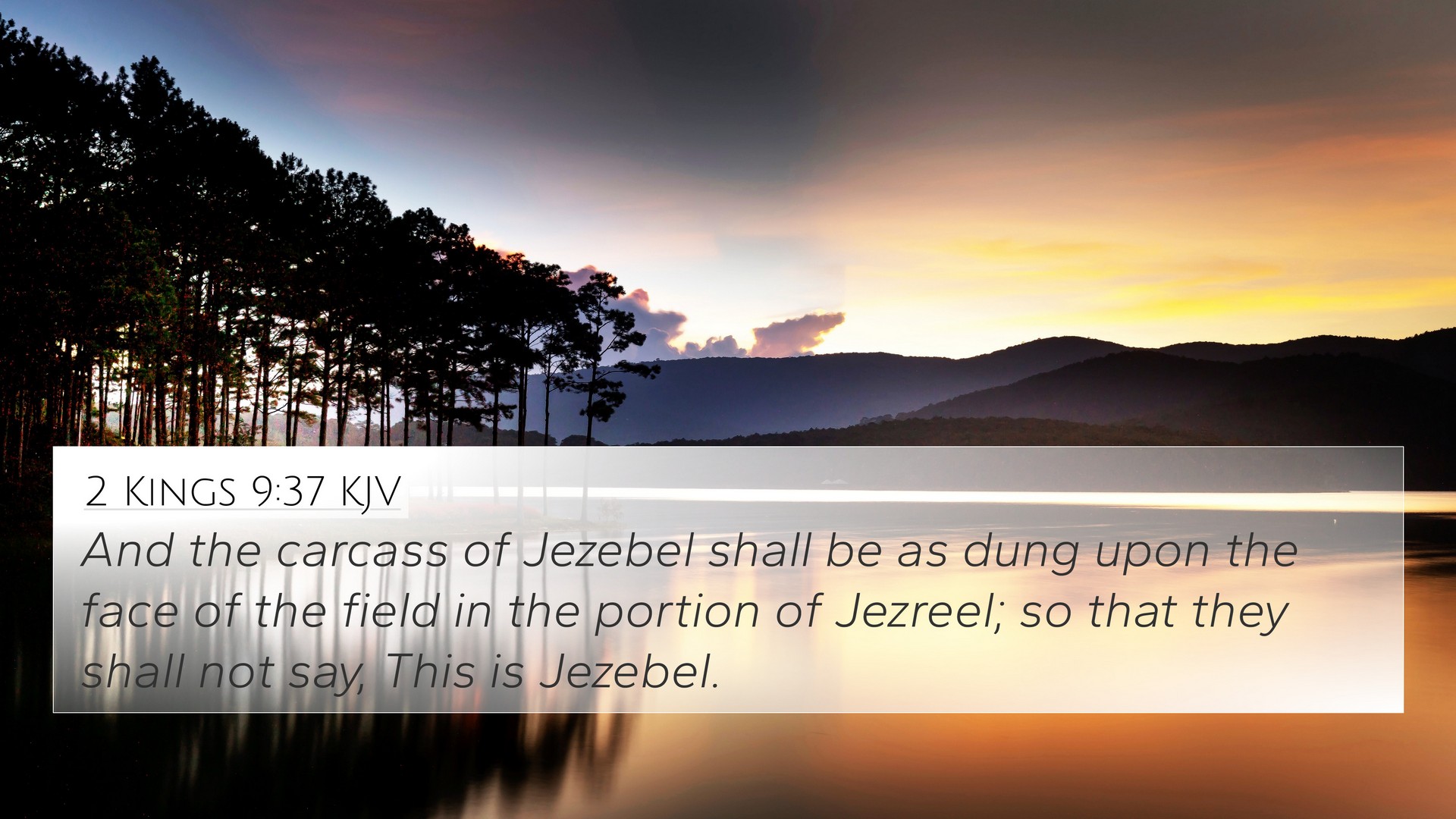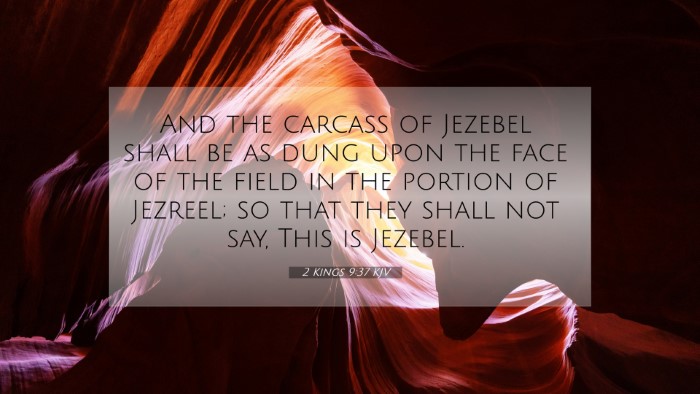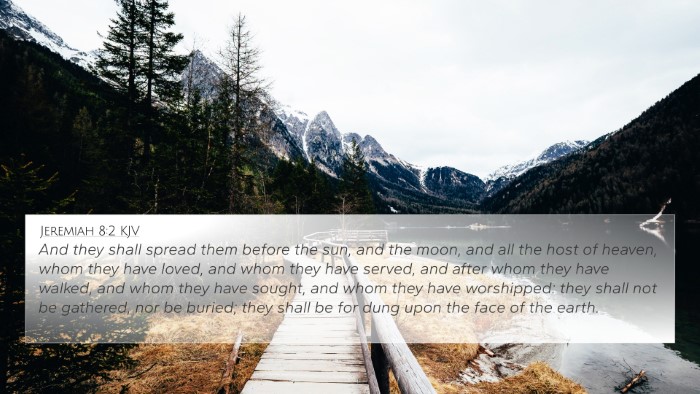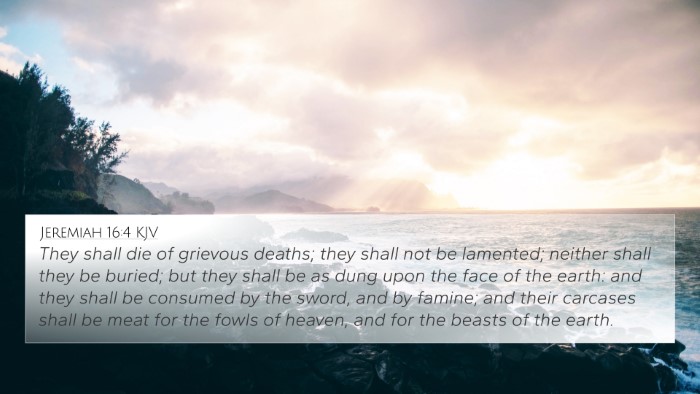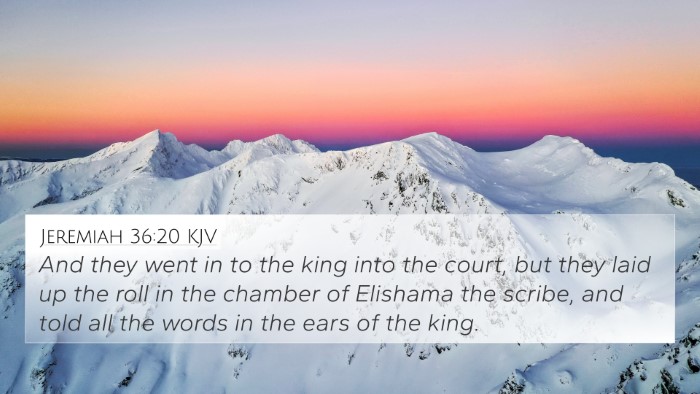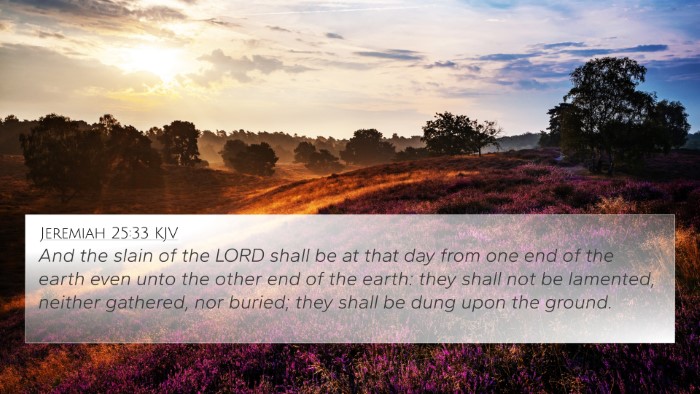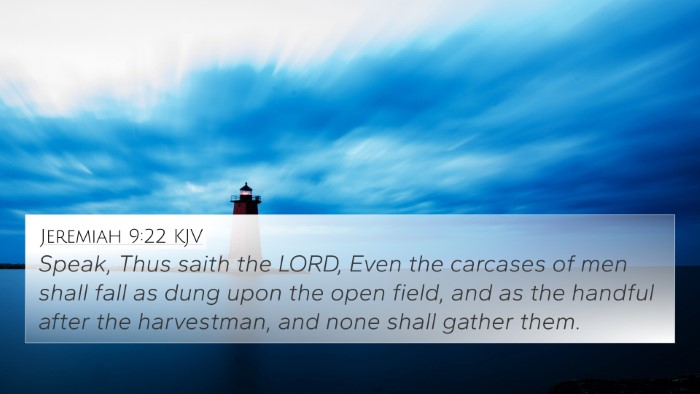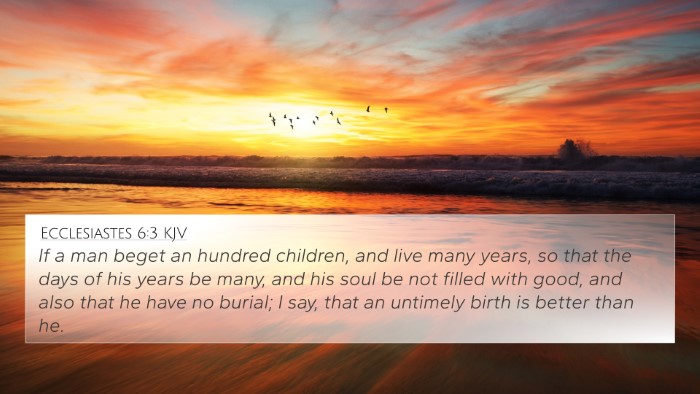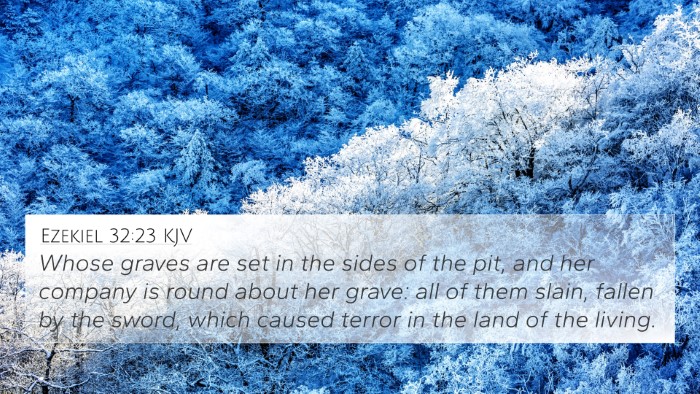Understanding 2 Kings 9:37
Verse Context: The verse states, "And the carcass of Jezebel shall be as dung upon the face of the field in the portion of Jezreel; so that they shall not say, This is Jezebel." This pronouncement comes from the prophet Elisha and signifies the doom and disgrace awaiting Jezebel as a consequence of her actions against the Lord and His prophets.
Verse Meaning Summary
This verse highlights the severe punishment for idolatry and wickedness. Jezebel, known for her leading Israel into the worship of Baal and persecuting Yahweh's prophets, is foretold to end in utter disgrace. Her body will be treated as refuse, illustrating both her moral and spiritual decline.
Commentaries Insights
- Matthew Henry: Emphasizes the divine judgment against those who oppose God's ways. He notes that Jezebel’s horrific end serves as a solemn warning of the consequences of idolatry. The mention of her being as dung signifies her complete humiliation and the eradication of her memory.
- Albert Barnes: Expounds that the lack of burial for Jezebel indicates an extreme dishonor. In ancient cultures, honorable burial was paramount, and her end reflects God’s judgment for her sins of manipulation and murder, particularly of His servants.
- Adam Clarke: Indicates that the prophecy shows God's perfect justice. Jezebel’s reign brought destruction; her final state reflects the inevitable downfall of those who persist in evil. Clarke points out that the imagery of dung emphasizes that she will be forgotten, and her legacy will be one of shame.
Bible Verse Cross-References
Several other verses resonate with the themes found in 2 Kings 9:37, emphasizing God's justice and the folly of turning from Him:
- Revelation 2:20-23: Addresses false prophets and the consequences of immorality, drawing parallels with Jezebel's actions.
- Proverbs 14:34: "Righteousness exalts a nation, but sin is a reproach to any people," illustrating that national and personal righteousness are crucial for divine favor.
- Isaiah 14:19: Discusses the fate of arrogant rulers, mirroring Jezebel's ultimate demise.
- 2 Kings 9:10: Foretells that the dogs will eat Jezebel, affirming her fate in a similar manner to what is stated in verse 37.
- Jeremiah 22:19: Reflects on the dishonor of those who lead others astray, akin to Jezebel's legacy.
- Psalm 79:1-3: The effects of sinfulness can lead to desolation and dishonor among God's people, similar to Jezebel's legacy.
- Luke 16:15: Jesus speaks of how God knows the hearts of men, contrasting human opinion with divine judgment, as seen in the treatment of Jezebel.
Thematic Connections
This verse highlights overarching themes of:
- Divine Judgment: The fate of wicked individuals signifies God's authority that brings justice to bear on unrighteousness.
- Idolatry Consequences: It serves as a testament to the dangers of leading others into idol worship, which is abominable in the eyes of God.
- Legacy and Remembrance: It showcases how one’s legacy is intertwined with righteousness or wickedness, shaping the way future generations view them.
Using Biblical Cross-References
In comprehensively studying Bible verse connections, consider employing tools for Bible cross-referencing. This could include:
- Bible Concordances: Useful for finding specific themes or keywords and their occurrences throughout scripture.
- Bible Cross-Reference Guides: These resources help trace similar themes and verses across the canon.
- Cross-Referencing Bible Study Methods: These practices allow believers to deepen their understanding of scripture through comparative analysis.
Conclusion
2 Kings 9:37 serves as a vital reminder of the seriousness of sin and rebellion against God. The prophetic judgment against Jezebel illustrates the vital connection between one's actions and their eventual consequences, anchoring understanding in both Old and New Testament scriptures. The thematic reflections and cross-references enrich the study of this verse, aiding believers in grasping the broader implications of divine justice.
